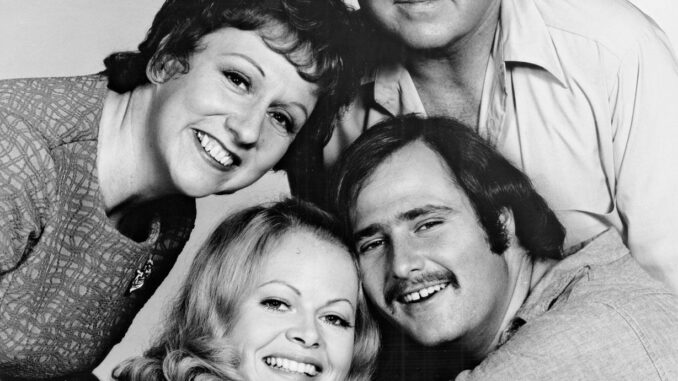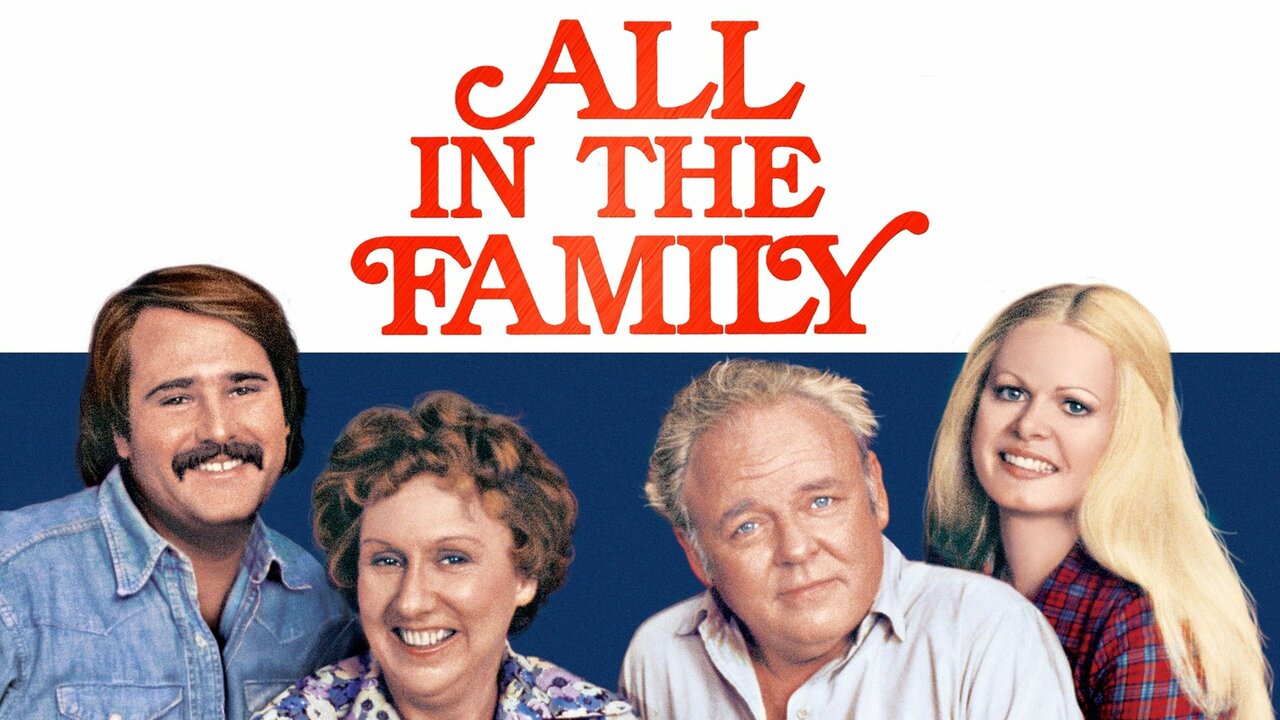
What if I told you the show that forever changed American television didn’t have glitz, glamour, or even a laugh track that always hit? Instead, it had a loud-mouthed, working-class bigot sitting in a tattered chair—and yet, it became one of the most influential sitcoms in history. That’s All in the Family.
Premiering in 1971, All in the Family flipped the sitcom script, and by the time May 30, 2024 rolled around, the world looked back in awe at how this trailblazer reshaped TV, politics, and everyday dinner table conversations.

The Birth of Something Bold
A Show Unlike Any Other
All in the Family wasn’t just a sitcom—it was a social commentary wrapped in jokes. Created by Norman Lear, it debuted at a time when America was grappling with war, civil rights, feminism, and generational divides.
The Inspiration Behind the Madness
Inspired by the British show Till Death Us Do Part, Lear adapted the concept for American audiences—injecting even more controversy and courage.
Meet the Bunkers – America’s Most Uncomfortable Family
Archie Bunker – The Flawed Everyman
Played masterfully by Carroll O’Connor, Archie was a paradox. A loud, unfiltered, blue-collar conservative who made viewers squirm—and laugh. He said what many feared to admit, which made him both loved and loathed.
Edith – The Heart in the Chaos
Jean Stapleton’s Edith was sweet, slow-speaking, and deeply moral. She didn’t always understand Archie, but she always tried. And when she stood up to him? Magic.
Gloria & Michael – The Voice of Change
Sally Struthers and Rob Reiner brought the younger generation to life. Gloria, the feminist daughter, and Michael “Meathead,” the liberal, anti-war son-in-law, were thorns in Archie’s side—and reflections of America’s shifting values.
Breaking the Sitcom Mold
Tackling Real-Life Issues Head-On
All in the Family was never afraid. Racism, abortion, rape, war, sexism, homophobia—these weren’t hidden behind metaphor. They were right there, in your face, with laughs and gasps woven into every scene.
The First Sitcom With a Warning Label
CBS added a disclaimer before every episode, warning viewers about the controversial content. That was unheard of—and it worked.
Ratings, Awards, and Recognition
The Nielsen King
From 1971 to 1976, All in the Family was the most-watched show on television. That’s not just success—it’s domination.
Emmy Gold and Critical Acclaim
All four main cast members won Emmys. The show took home 22 Primetime Emmys total. It wasn’t just groundbreaking—it was good.
The Social Impact Nobody Expected
A Mirror to America’s Soul
Norman Lear didn’t write a hero. He wrote a challenge. Archie Bunker wasn’t meant to be admired, yet millions did. He was a mirror—sometimes cracked, sometimes too clear.
Did Archie Bunker Normalize Bigotry?
Here’s the twist: many viewers didn’t get the satire. They saw Archie as someone “speaking truth,” not realizing they were the butt of the joke. That raised eyebrows then—and still does now.
Legacy That Lives On
Spin-offs That Shaped TV
All in the Family gave birth to The Jeffersons, Maude, and Good Times—all shows that tackled social issues with humor and heart.
Inspiration for Modern Storytelling
From Atlanta to The Office, the DNA of All in the Family lives on in shows that mix the serious with the silly.
A Chair in the Smithsonian
Archie’s Chair Becomes a Cultural Artifact
That beat-up chair in Archie’s Queens home? It now sits in the Smithsonian Museum of American History. It’s not just furniture—it’s history.
Why It Still Matters in 2025
Relevance Never Goes Out of Style
Watch an episode today, and it still hits hard. That’s the sign of brilliance. The issues? Still here. The humor? Still sharp.
Modern America, Same Old Arguments
Race. Gender. Politics. Sound familiar? All in the Family brought these fights to our screens—and they haven’t gone away.
Lear’s Legacy
Norman Lear – The Bold Architect of Truth
Lear gave voice to the voiceless and challenged the powerful. He used comedy like a scalpel—cutting deep with every laugh.
His Influence on Future Creators
Writers like Shonda Rhimes, Larry David, and Kenya Barris owe a nod to Lear. He taught them to speak up—and make people laugh while doing it.
What People Said in 2024
The 2024 Retrospective’s Key Message
On May 30, 2024, critics and fans alike looked back at the show as both a relic and a revelation. It reminded us how far we’ve come—and how far we haven’t.
Quotes That Still Hit Hard
“Stifle yourself, Edith!”
“You are a meathead. Dead from the neck up.”
“If God had meant for us to be together, He’d have given us the same color TV.”
The insults were brutal. The meaning? Sharper than ever.
So, What’s the Lesson?
Comedy Can Change the World
All in the Family wasn’t just trying to make you laugh—it was trying to wake you up. And it did.
Conclusion: A Sitcom That Changed Everything
In the pantheon of TV history, All in the Family isn’t just another show—it’s the show. It gave us permission to talk about the hard stuff, to challenge each other, and to find laughter in the uncomfortable.
More than 50 years later, it’s not nostalgia we feel. It’s respect. And maybe a little disbelief that one cranky man in a chair did what no politician or pundit could: get America to listen.
